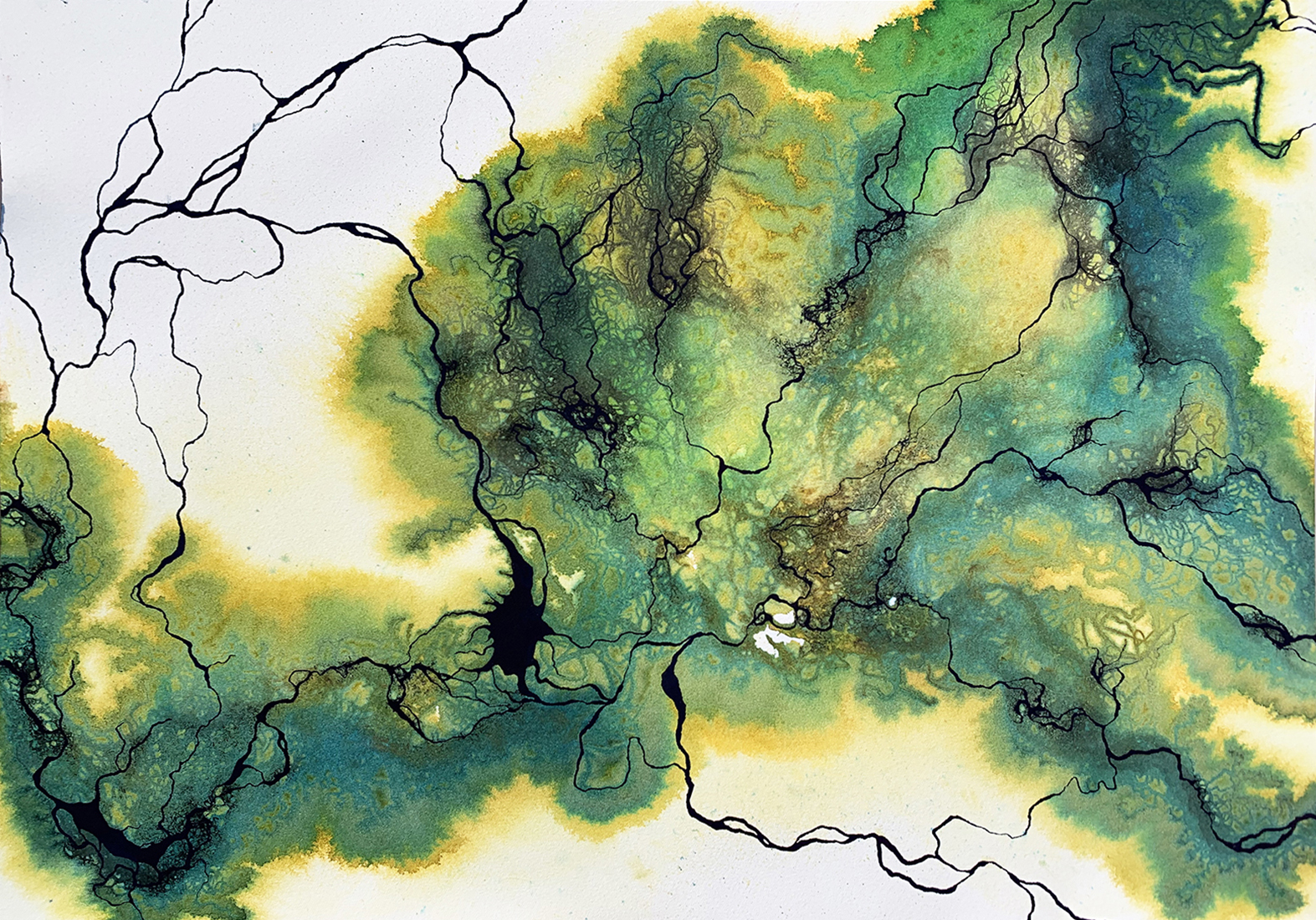Christina Conklin’s works on paper employ seaweed, inks, watercolors, and natural pigments. Her compositions can be seen as documentation of the elemental processes of life, magnified microscopic organisms and their worlds, polar landscapes, and maps. Her recent work conjures images of spirit animals.
Like the British and U.S. land artists of the 60s and 70s, Conklin’s art practice includes working in the field making marks directly on the land and using raw materials of the earth in her studio work. Their spiritual yearnings concerning the planet Earth as home to humanity is felt in Conklin’s work as well.
Conklin is the co-author and illustrator of The Atlas of Disappearing Places: Coasts and Oceans in a Time of Climate Change (The New Press, 2021) using an ink-on-dried seaweed process. She received her BA cum laude in religious studies and studio art from Middlebury College, followed by a Thomas B. Watson Fellowship to study the Gaelic language and culture in Scotland. There she worked with local activists and artists, documenting the traditions of an ancient culture struggling to adapt to modernity. Conklin received her MFA from California College of the Arts where she focused on textiles and sculpture. Conklin lives in Half Moon Bay and works in Pacifica, CA.
Conkin’s solo exhibition, When We Were Ocean, is on view at M Stark Gallery through July 15. Gallery hours Saturday 12-5 and Sunday 12-4, and by appointment

